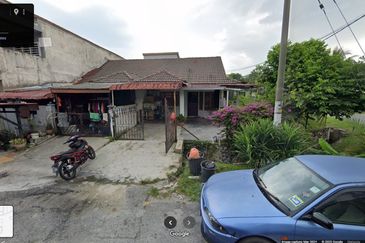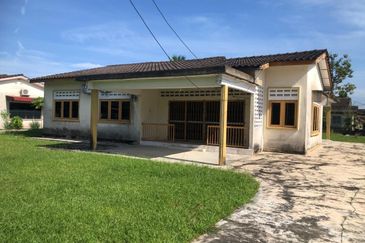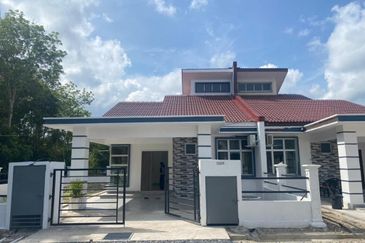
- In real estate investment, auction properties seem like low-hanging fruit ripe for the picking because of their usually ready-to-move-in state and lower-than-market prices. However, the journey is not as straightforward compared to purchasing from either the primary or secondary market. Read how a young investor learned it from scratch.
Editor’s note: The immensity of buying a property is daunting enough for any first-time homebuyer, but it becomes doubly so when the path is taken through the bidding process. Thus, when EdgeProp discovered a buyer who had not only navigated through the maze, but done it at the young age of 25 (no, there was no family financial backing), we approached him to share his story.
My story with auction property began with a simple advertisement on a property listing site. Like many intrigued by auctions, what captivated me initially was the ridiculously low price. It opened my eyes to a whole new world — one that aligned with my investment preference, i.e. risk averse, methodical and hesitant (yes, I can be very hesitant).
Although I am 25, I have never been drawn to the kinds of investments that young people tend to trend towards, like stock market and crypto trading. That’s because they are too speculative and volatile within my limited level, and I acknowledge my financial acumen is not sharp enough to separate the wheat from the chaff in high-risk investments.
I prefer something more certain. I know putting “auction property” and “certainty” together may seem paradoxical, but every known begins from an unknown, and I believe, with sufficient diligence, we can transform the unknown into the known and the uncertain into the certain.
Besides, an auction property investment possesses two key advantages. Firstly, auction property is cheaper than the market price, so the consequences of making errors are not as catastrophic. The cheaper the property we find, the greater the room for mistakes. My favourite football coach, Jürgen Klopp, once said that mistakes are inevitable and it is important to create an environment where we feel safe to make mistakes. The low reserve price acts as a safety net; if some hidden costs have been overlooked, it can compensate for them.
Secondly, property serves both as an investment and as a place to live. Unlike bitcoins or shares, if an investment property fails to make returns or incurs losses, at least it still provides a roof over my head.
The blood, sweat and tears
Nonetheless, my auction journey was fraught with challenges. The nature of auction property investment is such that it demands our utmost dedication in the preparatory stages, yet even after pouring our heart and soul into the endeavour, the outcome is still not guaranteed. In the span of four months, I had lost three auctions before I won the fourth.
I prefer to call the preparatory steps “due diligence” or “groundwork” to emphasise that we cannot afford to skip them — they can either make or break the deal. It starts with loan eligibility checks and finding the right property. It requires you to dive into market research, calculate return on investment and potential costs, visit sites, conduct land searches and bankruptcy checks, decipher the Proclamation of Sale (POS) and the bidding rules, and hold conversations with the property agent, loan agent and solicitors to make sure everything is in order.

Sometimes you spot the right property but the reserve price is not quite right. Waiting for the next round(s) of auction when the price drops may seem the smarter move, but sometimes halfway through waiting, another investor swoops in and sweeps the stakes, and you are back to square one, with all your spadework feeling fruitless.
Now, with some luck, you could have identified the right property at the right price, but pending are the administrative steps. Registering an online account with the auction house, undergoing identity checks, paying for the deposit, and waiting for the green light from the auction house — talk about nerve-wracking. In the meantime, you find yourself frequenting the bidding test site countless times to familiarise yourself with the bidding process.
The D-Day
The auction day eventually arrives. It all boils down to this moment. But after weeks and months of hustle, with the irrecoverable costs totalling up to several hundred ringgit at this point, you find yourself in the ring with other bidders — some auction houses may even notify you on the number of bidders before the auction starts. Opting to participate online, you log into the bidding site with sweaty palms, waiting for your lot, constantly worrying about your internet connection.
Finally, your turn arrives. After the countdown, the auction starts. It is only at this moment that you get to know the incremental amount for every bid. To add to the tension, sometimes, the reserve price may even be increased at the auctioneer’s will if there is more than one bidder. However, before this influx of information sinks in, the mechanical and relentless bidding calls have already ensued — “First Calling, Second Calling, Third Calling” — giving no breaks for reflection.
Your finger hovers over the bid button, and after some hesitation, you finally press it. “First Calling, Second Calling, Third Calling —”. The seconds tick by. Your excitement builds.
3. 2. 1. Just a second more to go …
“First Calling!”
Close, but no cigar.
Yet the bidding shows no sign of stopping. You follow along, along and along. But soon the bidding price exceeds the price limit you have set for yourself.
You find yourself torn. Should I keep going or stick to my limit? Have I set my limit too low? The fact that they are still bidding surely shows that the property is worth more, right? Maybe something went wrong with my calculations …
Eventually, you give up, keeping your gaze at the screen until the final winner is declared. “Sold!” the e-auctioneer announces authoritatively.
A message pops up, which often sounds mocking to me: “Thank you for participating in the auction. We will process your refund within three working days”.
You close the site and release a breath you have not realised you had been holding, adrenaline still sky-high. It has been long over, but it feels as though you are still left in the ring — now alone.
Processing the defeat
I often exceeded my price limit on the spur of the moment — luckily not by much. The last few bids were out of sentiment, often driven by a reluctance to accept defeat. I can’t help it — it’s part of the cost to pay. The emotional attachment towards an auction property deepens with weeks or even months of research and investigation — investing not only time and money, but also emotion. Trust me, the strong feelings I had towards the properties I have lost at auctions have stayed until even today. It feels like trying to move on from a relationship that has ended. Every time I drive by a property I have lost, I still feel a pang in my chest.
This is the sunk-cost fallacy. Our thoughts become clouded by the reluctance to let go of what we have invested heavily in. Over time, I have learned that to overcome it, you have to first realise you are now a victim of this fallacy. It may be implausible to completely brush away the emotions, but it is possible to separate decision-making from emotions by relying on a clear head, and cold data and statistics. Divert your attention to the future earnings, not the past investments.
(Read Part 2 here.)
Lee Ji Yong is a junior in-house legal practitioner with a law degree from the University of London and the Malaysian Certificate in Legal Practice. He specialises in contract drafting, reviewing and negotiations. He is keen on property investment and enjoys reading the “Rich Dad” series.
Disclaimer: The views expressed are the writer’s and do not necessarily reflect EdgeProp’s. While every effort has been made to ensure that the information provided in this article is accurate, reliable, and complete as of the time of writing, it is for general information only, and should not be relied upon to make any financial, investment, real estate or legal decisions. The information should not substitute advice from trained professionals, and we accept no liability if you use the information to make decisions.
Looking to buy a home? Sign up for EdgeProp START and get exclusive rewards and vouchers for ANY home purchase in Malaysia (primary or subsale)!
TOP PICKS BY EDGEPROP

Ion Belian Garden, Batang Kali
Batang Kali, Selangor

Bandar Bukit Tinggi
Bandar Botanic/Bandar Bukit Tinggi, Selangor

Section 19 (Seksyen 19) @ Shah Alam
Shah Alam, Selangor

Bandar Mahkota Banting (Brooklands)
Banting, Selangor

Bandar Mahkota Banting (Brooklands)
Banting, Selangor

Bandar Mahkota Banting (Brooklands)
Banting, Selangor

Bandar Mahkota Banting (Brooklands)
Banting, Selangor


















